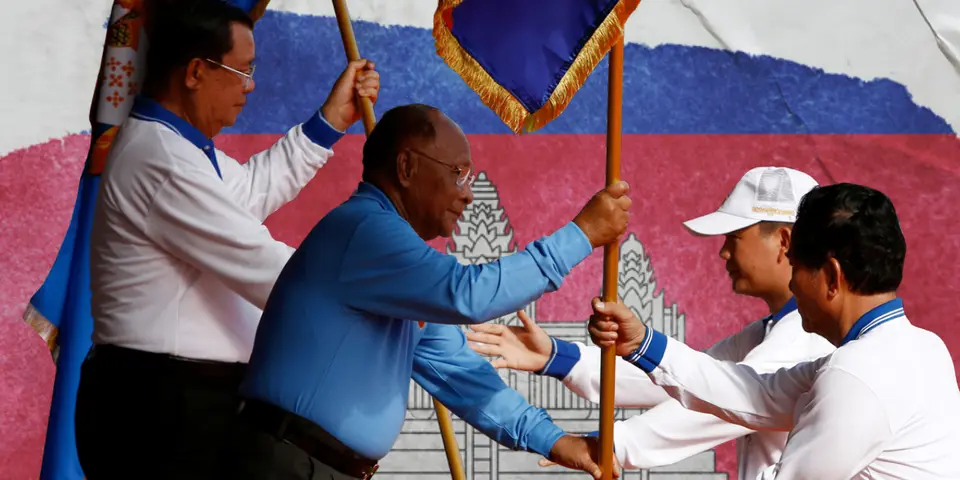
New Face, Same Old System: Special Report on the Generational Transmission of Power in Cambodia
December 20, 2023

PHNOM PENH – Is Cambodia in the midst of a political transition? This was the question on the minds of many foreign observers as Hun Sen, one of the world’s longest ruling strongmen, formally handed the post of prime minister to his son Hun Manet. Hun Sen has ruled Cambodia since 1985 and has taken increasingly brutal measures to consolidate his power, such as using the country’s courts to dissolve the opposition Cambodia National Rescue Party (CNRP) in 2017.
In the early days of his premiership, Hun Manet has attempted to portray himself as a new start for Cambodia. While some analysts gave the transition a positive but guarded reception, the story was different inside the country.
This report, researched and written by an APHR member who has requested to remain anonymous for security reasons, consists of three articles that will examine whether this transition in leadership does anything to change the political, democratic, and human rights trajectory of Cambodia.
The first article in this report details the linkages of the Hun family to powerful corporations and business groups. Through strategic alliances with other powerful families, often cemented with marriage, Hun Sen’s family is arguably the richest and most powerful in Cambodia. While the sons, Hun Manet, Hun Manit, and Hun Many, hold key positions in the army and bureaucracy, it is the women in the family, Bun Rany, Hun Sen’s wife, and daughters Hun Mana and Hun Mali, who occupy powerful positions in the country’s corporate structure and elite civil society.
The second article in this report explores why, despite the fanfare given the generational handover, few people apart from die-hard partisans of the ruling regime think that the 71-year-old ruler is going away any time soon. One of the conclusions of the article is that the street-wise Hun Sen wants his western-educated son to learn the ways of maintaining and accumulating power, which, in the former’s case, involved a mix of guile and repression. Hun Sen wants to “test-drive” his eldest son, and Hun Manet knows he has to be a quick learner in combining the iron fist with the velvet glove or his father might flunk him and opt for another in the family to lead the dynasty.
The third article is an interview with Mu Sochua, an APHR Board member and one of the leaders of the opposition, who has not been allowed by the regime to return to Cambodia. She not only explains why the leadership transition is a charade but also speculates on why a number of prominent leaders of civil society have recently joined the Cambodian People’s Party (CPP). Despite the continuing stranglehold by the Hun Sen group on power, Mu Sochua sees some opportunities for the opposition in the coming election for the Senate.
ASEAN Parliamentarians for Human Rights (APHR) was founded in June 2013 with the objective of promoting democracy and human rights across Southeast Asia. Our founding members include many of the region's most progressive Members of Parliament (MPs), with a proven track record of human rights advocacy work.